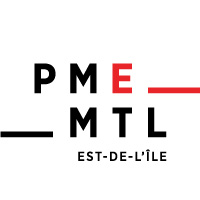To achieve growth while remaining uncompromisingly faithful to its founding values: that is the philosophy at the Ecomuseum Zoo. PME MTL has worked often with this remarkable institution, assisting in its mission of wildlife conservation and education.
Ecomuseum Zoo, the one and only outdoor zoo on the island of Montréal, features Québec's wildlife in a natural and enchanting setting. Opened in 1988, this zoo is nothing like the flashy establishments offering rides, water parks and other fancy attractions. “Here, we get to see real wildlife in their daily activities without disturbing them,” explains David Rodrigue, Executive Director since 2005, who started working at the Ecomuseum as a volunteer in 1992.
Long before recreational zoos began to adopt similar approaches, professor and biologist Roger Bider, the Ecomuseum Zoo’s founder, had always sought to make visitor awareness and education essential to its mission. Thus, the zoo was built on the foundations of environmental education, the acquisition-transmission of knowledge and the protection of animal habitats.
Serving Wildlife with Dedication and Resourcefulness
Although located in Ste-Anne-de-Bellevue at the far west of the island, the Ecomuseum Zoo ranks among Montréal's 15 most popular attractions, with more than 145,000 visitors each year. That is nearly double the 80,000 visitors it had when David Rodrigue took up his position.
In 2006, the new executive director deployed his first five-year plan to position the site, promote it and update its outmoded infrastructure. “A great deal needed to be done,” he recalls. It was at the time this plan was launched that the team at PME MTL was asked to collaborate with the Ecomuseum Zoo. Among the first items to be modernized was the aviary for ducks and herons.
Another major development was completed in 2017 at a cost of $1.4 million, when the otters were given a living area better adapted to their needs, including a large 250,000-litre water basin.
PME MTL continued its partnership with the institution in 2012, 2014 and this year, each time in order to help it pursue its original mandate. “We have always delivered what we committed to achieve, which gives confidence to our supporters,” says David Rodrigue, recalling the great dedication of the 52 members of the team at Ecomuseum Zoo who work 364 days a year (the only day off is December 25) on very restricted budgets.
He cited as an example the case of the Director of Education who, on top of his regular job description, is currently managing an expansion and redevelopment project. Indeed, job definitions can really be all-encompassing around here. “When there’s a snowstorm, even the executives go out and shovel,” says David Rodrigue with a laugh.
Accomplishing Much with Little
Its employees’ tremendous versatility also gives the Ecomuseum Zoo a certain financial flexibility. “While other zoos will spend $700,000 or $800,000 on a development project, we will do it for $200,000 or $250,000 because most of the work can be done in-house rather than subcontracted.”
The executive director used a recent example to illustrate his team’s resourcefulness and imagination. “We had to recreate a forest area to bring together lynx and fisher habitats,” he explained. “This was achieved by using metal structures and blackened stainless steel nets that we modified, cut and welded ourselves.” The results earned the Ecomuseum Zoo the Animal Enrichment Award from Canada's Accredited Zoos and Aquariums (CAZA). “It was certainly a lot of work, but in the end, our success was very rewarding and motivating.”
Continued Focus on Priorities
For the future, David Rodrigue intends to promote the Ecomuseum Zoo’s role as a magnet for visitors to the Ouest-de-l'Île of Montréal among local decision-makers and institutions. “In 2016, we commissioned a study conducted from May to September, the period during which the zoo receives 60% of its annual visitors. The study showed that the 76,000 people who visited our zoo generated more than $2.3 million in economic spinoffs for the area.”
However, there is still no question of trying to become any kind of Disneyland with roller coasters and Coke dispensers on the side. “We know that there is a price to pay for a mission like ours,” says David Rodrigue. “It remains that we are not here to make compromises, and our priorities will always be the well-being of wildlife, its conservation, the protection of natural habitats and visitor education.”
